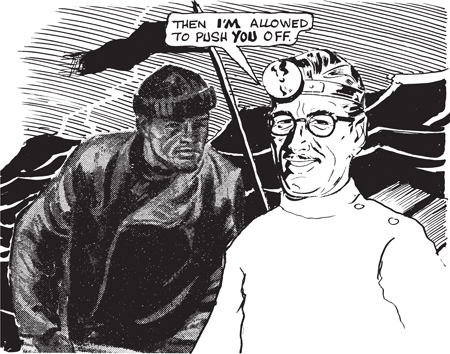
Then I’m allowed to push you off.
For Utilitarians, motives are unimportant; only consequences count.
The stress is on the act rather than the agent. Bentham and Mill would argue that people’s motives can’t be seen or measured, but the consequences of their actions can be. This is why Utilitarianism is sometimes also known as “Consequentialism”.
In certain rare situations, “Act” Utilitarians are allowed to break traditional moral rules if by so doing they produce a balance of happiness over misery. If a Utilitarian brain surgeon and a non-philosophical beggar were on a waterlogged raft that could only support one person…

Then I’m allowed to push you off.
By saving his own life and his medical skills, the murdering surgeon will bring about more happiness for more people than the beggar will ever be able to do in the future.
Bentham’s disciple John Stuart Mill was force-fed with education until the age of 20 when he suffered a nervous collapse.

I only recovered by reading romantic poetry and falling in love with a mrs. harriet taylor.
He worked as an official in the East India Company, eventually became an MP and led active campaigns for women’s suffrage. His most famous books on ethics are On Liberty (1858) and Utilitarianism (1863).